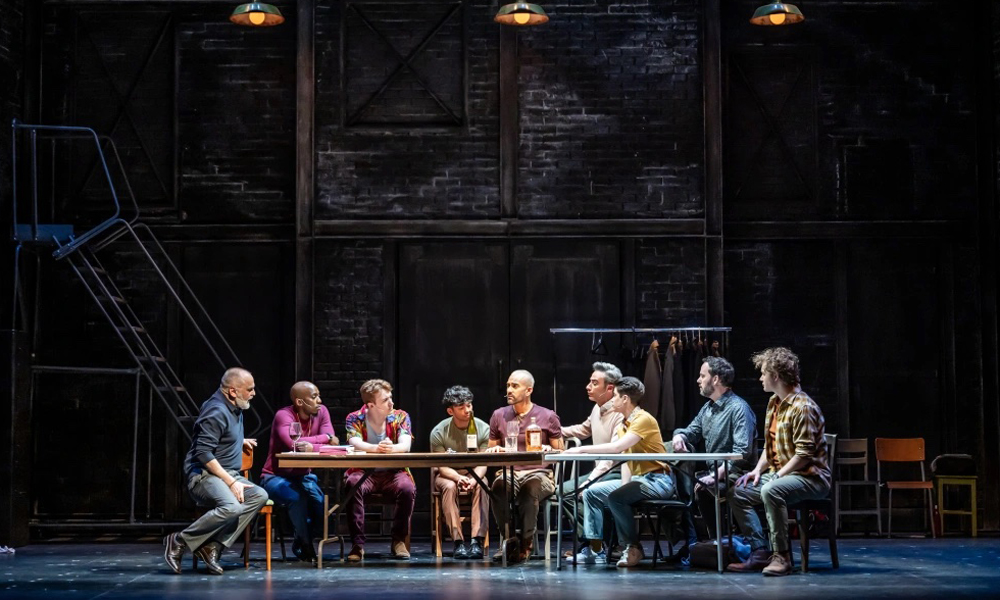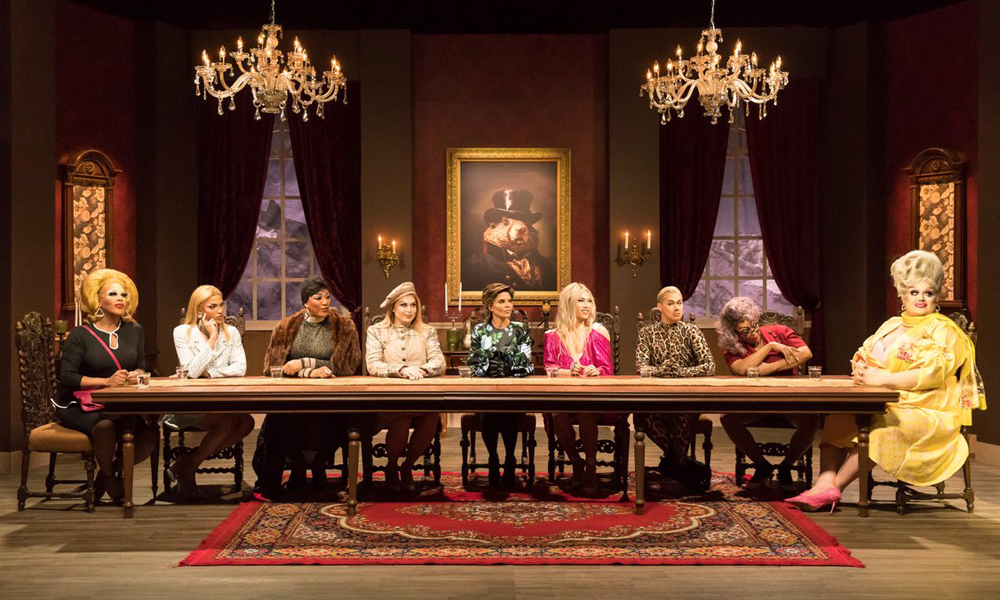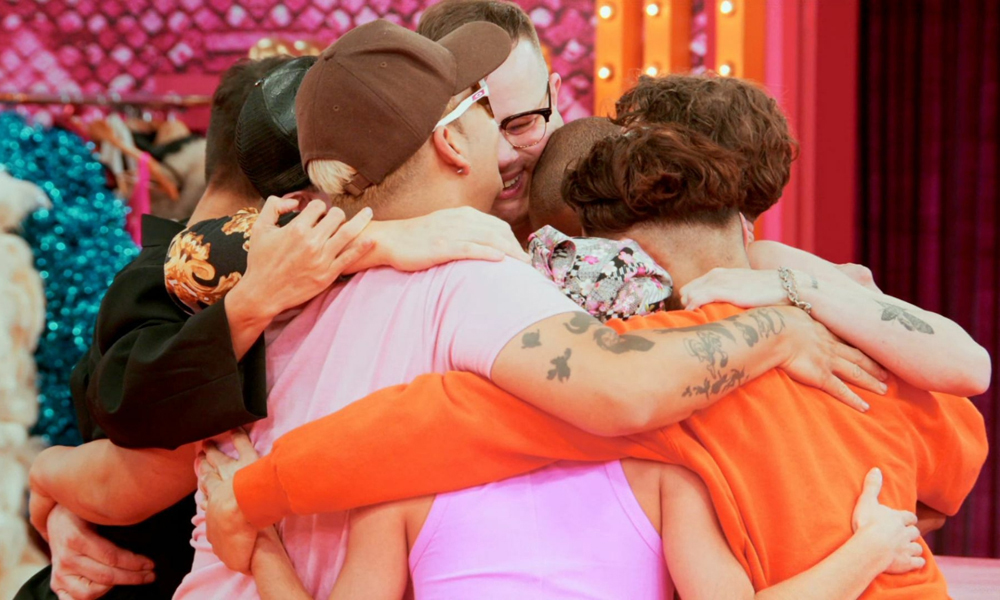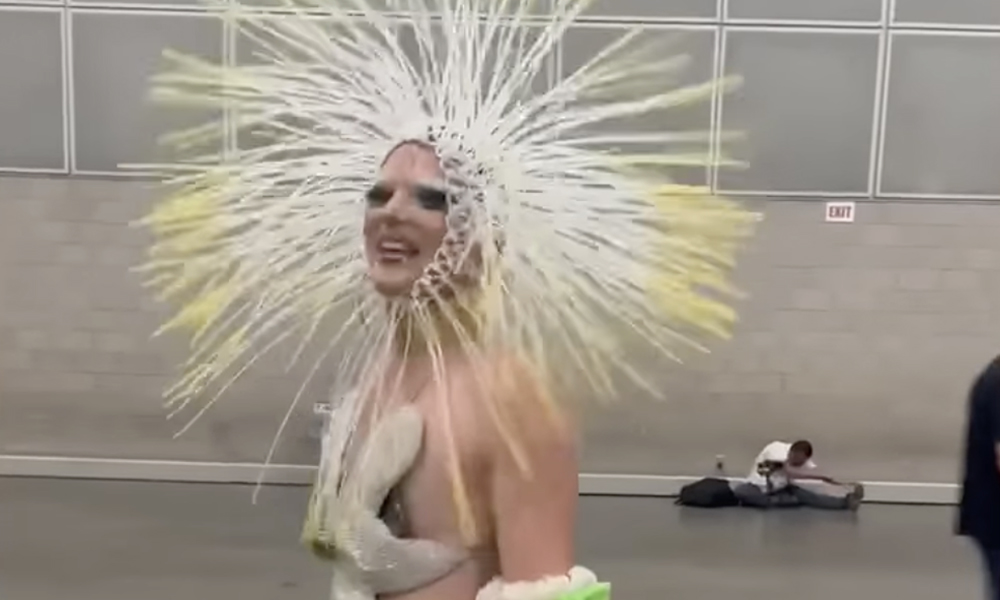Written by Matthew Lopez, the messy play about an absence and how to fill it, has completely captured the imagination of gay audiences…
By Paul Gallant
It doesn’t sound like something with great commercial prospects: a bum-numbing two-part play about gay men, their romantic and sexual relationships, their place in American society (mostly New York society), the AIDS crisis, the anguish of ancestral lineage and what villainy looks like.
Yet soon after Tony Kushner’s Angels in America: A Gay Fantasia on National Themes premiered in San Francisco in 1991, it became an eight-hour phenomenon, landing on Broadway in 1993. It won the 1993 and 1994 Tony Awards for Best Play and the play’s first part, Millennium Approaches, won the 1993 Pulitzer Prize for Drama. Though it’s very much rooted in its place and time (it really should feel more dated than it does) the play was turned into an HBO miniseries 20 years later, in 2003, and still gets produced in major theatres, despite the length and expense of it. (Toronto’s That Theatre Company did a production of Angels in 2023, 30 years after its Broadway debut.)
Set mostly in the mid-1980s (but also in some imaginary timeless place), Angels was written just a couple of years before the deadliest era of the AIDS crisis started subsiding, when a new class of antiretroviral drugs gradually ended the idea of HIV/AIDS as a death sentence for those who had access to them. Writing the play, Kushner had no idea that the light at the end of the tunnel was literally months away; despite his attempts to inject Angels with hope—“The world only spins forward”—the play is saturated in anger and frustration. It’s pretty humourless. There didn’t seem to be a way out except in our caring for each other. Men who had sex with men were doomed to always have their lives defined by HIV/AIDS—how do we comes to terms with that?
We mostly didn’t come to terms with it. Things changed. With Undetectable=Untransmittable, PrEP and PEP, there are young gay men these days who only know about the AIDS crisis through movies, TV, theatre and books—if they have bothered to pay attention to these stories. Kushner’s play is ancient history.
The urgency of the historical circumstances of Angels is what makes Matthew López’s The Inheritance, which this month just finished a run at Toronto’s Canadian Stage theatre, such a weird, unlikely piece of art. The fact that The Inheritance has itself become a phenomenon since it premiered in 2018, hitting Broadway in 2019, tells us something about what we crave to see and hear in the U=U era.
The Inheritance borrows its main plot from E. M. Forster’s 1910 novel Howards End: a character is bequeathed a property without their knowing about it, doesn’t get their inheritance because of mean people, but in the end, ironically, gets the property, mostly because they’re loveable and maybe because of cosmic justice. E.M. Forster didn’t merely contribute to the plot; he’s a character there on stage, coaching the other characters along. López has talked about how much inspiration he drew from the closeted British writer, whose only gay-themed novel, Maurice, wasn’t published until after his death.
But in its ambitions, in trying to “sum up” a generation of gay life, its fantastical structure and, of course, its seven-plus-hour runtime, The Inheritance feels more like an Angels sequel. “There will likely never be another play about the epidemic, or about gay life in America in this era, that does not at least gesture to Angels,” write Isaac Butler and Dan Kois in their oral history of Angels in America. Judging by The Inheritance, there will never be a play about gay life in America, period, that is not framed by Angels.
That means The Inheritance is built around absence: the anger, frustration, camaraderie and loss, hope and hopelessness that drove Kushner have dried up. Yes, the closet, homophobia, hypocrisy, systemic oppression, familial estrangement and HIV/AIDS still exist, but there are large swaths of sunlight that many gay men can live in now, particularly the upper-middle-class and filthy rich Manhattanites that make up the majority of López’s characters.
Getting at that absence is, partly, López’s mission. He’s asking: What does it mean to the current generation of queer men that so many of the men who would have been their mentors, lovers, cultural icons died during the AIDS crisis? What does that loss mean?
“There are no gay men my age! Not nearly enough,” shouts the character of Henry, an older real-estate developer who, with his partner Walter, survived the AIDS crisis. Henry is not only a survivor, he’s a conservative, a ruthless capitalist, an unethical lover and someone, who, unwittingly perhaps, by means of his support of his long-time partner Walter, does good deeds. He’s also manipulated by his straight sons (it’s funny that the cartoon villains are the only straight men in the play) to do the wrong thing. He’s complicated. Being someone who married a woman, had kids, had a long-time gay relationship, lived in and out of the closet, has political beliefs that don’t align with his community—it’s complicated. Being a survivor of a lost generation is complicated. Henry’s life raises a lot of big philosophical and sociological questions.
The younger characters in The Inheritance are not struggling against systemic oppression and a mysterious disease and, until later in the play, don’t even know what they don’t know about the past. Then, what is their struggle? What to serve at the next brunch? Where to hang that painting?
Yes, and a lot of other things. Creative challenges—two of the main characters are writers. HIV/AIDS is not entirely avoidable. Sexual assault. Drugs and alcohol. Sexual hangups. Falling in and out of love. Sexual obsession. Lack of purpose. Grief. Not to trivialize these struggles, but presented in a pile, one after another, these are soap-opera problems. They are problems that we grapple with as individuals, often in private, not as a united community.
This, I think, is part of The Inheritance’s popularity. Even if the audience demographics don’t exactly match up to the demographics of the characters, anyone can see themselves or their peers up there on stage in one form or another—who doesn’t know someone haunted by a drug or alcohol problem? López provides us with many more entry points into his play than Kushner did. Gay men of several generations, straight people, even, can find something to relate to.
López goes even further in giving audiences what they want. Not to give anything away, but in his hopeful ending, the playwright seems to be suggesting that there can be a community response to these diffuse, personal struggles, that even without a shared crisis, we can come together to be there for each other. And if there can be a community response, there must be, despite all the handwringing about dying gay villages, a community. Some vein of shared culture—beyond memorizing lines from The Boys in the Band and obsessing over Judy Garland and Barbra Streisand—makes gay men who they are (López has almost nothing to say about women, except as mothers).
So, after highlighting the absences in and struggles of contemporary gay life, and suggesting that shared cultural experiences is the solution, López gives us… The Inheritance. The seven-plus-hour play is the very balm it’s made audiences yearn for. Very meta.
The Inheritance is certainly not the cri de coeur of Kushner’s Angels, which is what gives that play its iconic status. But it’s an ingenious strategy for making audiences feel special, as well as entertained—and it’s certainly funnier than Angels.
The play also lets López insert himself into the legacy of gay cultural history, to make himself the bridge between Forster, Kushner and future generations. Mic drop. At least until someone writes a nine-hour three-part reboot.






POST A COMMENT